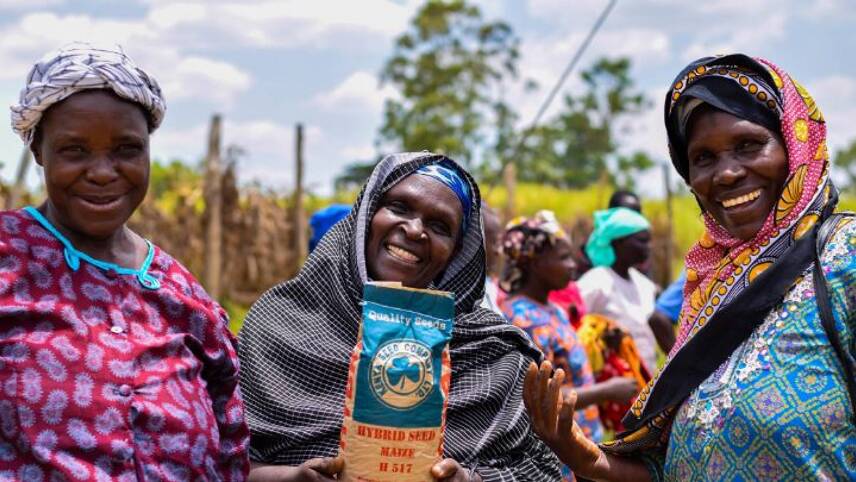Register for free and continue reading
Join our growing army of changemakers and get unlimited access to our premium content

More than 200
Called FARM (Financial and Agricultural Recommendation Models) and delivered in partnership with social enterprise Agrics, the project is providing more than 200,000 small-scale farmers in Kenya with the hardware and software they need to analyse big data regarding issues such as weather patterns and soil quality.
The platform uses AI to “intelligently” collect and process the data, before providing the user with personalised insights and recommendations to optimise crop yield and eliminate inefficiencies. In sustainability terms, results of acting on the recommendations are likely to be better water management, the use of less fertiliser, the generation of less food waste throughout the value chain and improved incomes for farmers.
Data used to generate the recommendations is collected from both public and private sources, including nationally owned satellites and Agrics’ databases regarding crops grown, potential and realised yield, field parameters and worker finances. The fact that this data is hosted on the cloud will enable farmers to access the platform using just a smartphone.
In time, Capgemini claims, AI could play a key role in maintaining food security in the future as the global population grows and the climate changes. Scientists have repeatedly warned that the ways in which land is currently used by the so-called “big food” sector is inefficient and present and that change at scale is needed to help the sector mitigate and adapt to megatrends.
“By connecting farming communities with data science – and big data with traditional farming methods – the FARM platform is built to optimize the value chain and bring parties together as an ecosystem around one data-driven platform,” Capgemini’s Project FARM lead Julian van Velzen said.
“The platform can pave the way for bringing automated farming to small-scale farmers. With the increasing availability of open data and decreasing prices of sensors and satellite imagery, the future of farming is bright.”
The future of food
The move from Capgemini forms part of its overarching vision to help its staff and clients act as “architects of positive futures”.
As pressure for action on climate issues affecting food systems grow, amid growing public protests, national policy changes, changing investor demands and new business commitments, Capgemini is one of several firms taking a digital approach to assertations that agriculture can deliver one-third of global climate solutions by 2030.
Unilever and Sainsbury’s, for example, recently revealed that a joint blockchain-based experiment aimed at improving social and environmental practices in their tea supply chains has proven successful. Orchestrated by the University of Cambridge’s Institute for Sustainability Leadership (CISL), the scheme provided farmers with a financial incentive in return for feeding social and ecological data into the blockchain system.
Blockchain for food supply chains is also being touted by the likes of Princes, Ben & Jerrys, Accenture and Mastercard, while other big-name firms are betting on digital solutions such as satellite mapping and interactive, consumer-facing maps.
Sarah George


Please login or Register to leave a comment.